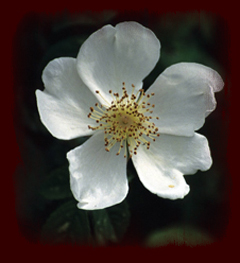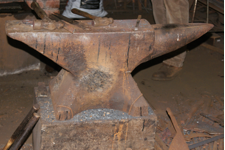
CLAN OF TUBAL CAIN

Smithcraft and the Cunning Art --- by Shani Oates |
Anvil: Old English: aufealt
But if we look very closely at the following list of associations and derivatives [all of which have been included for interested parties to explore to their own satisfaction], then a better and more logical attribution would be `smith' whose trade and tools derive from the same stem root, encompassing, the force and skill required to temper both steel and tongue – master of the word [spirit of fire]and the forge [manifest fire], it is perhaps easy to see the historical and folk link of a blacksmith with a magus, a horseman and a toads-man..........least likely is the term expeller given the requisite prefix to make sense of the term and the shift away from the link between the smith, his tools and his horse, both iron[anvil]and breath[spirit]... thus wielding the three civilising arts, it is not but a shuffle to imagine the valorisation of such a mage to priest/king? I should however stress that the service and function of an ‘expeller’ is not to be discounted from the usage associated with the development and practises of the peller,...and it would be another valuable expression and development finding usage of the stem 'pel', but the primary dynamic offering the greatest significance, particularly to Cainite Traditions is clearly the synthesis and elegance of the smith and his craft [including the command of the spoken word] and is too fine a fit to pass over... 1. Proto-Indo-European root *pel- 2. Proto-Indo-European root *pel- derived from the Proto-Indo-European root *pel- Derivations in other languages 3. Proto-Indo-European root *pel- derived from the Proto-Indo-European root *pel- 4. Proto-Indo-European root *pel- derived from the Proto-Indo-European root *pel- Derivations in other languages 5. the Latin word *pellere* (beat; drive out; push) derived from the Proto-Indo-European root *pel- Part of Speech: noun. Pronunciation: [pê-'lem-ik] Usage: This word can entail a negative connotation, especially around political situations, "Little truth emerged from the polemics of the two opposing candidates." The meaning is not necessarily negative, however. A polemic for environmental preservation could be simply a passionate argument. Etymology: Today's word started out as Greek polemikos "hostile," the adjective from polemos "war, battle." The root of the Greek word originally meant "beat, hit, thrust." The same root turns up in Old English "anfealt," which today is "anvil," something you beat on. Old English "felt" is also a relative that may have been borrowed into Medieval Latin as the root in filtrum "felt, filter," which returned to English as "filter." In Latin the original root became pellere "to push, drive, hit," whose past participle is pulsus "beat" from which we derive "pulse." (http://www.myetymology.com/) 6. expel, v. t. [L. expellere, expulsum; ex out + pellere to drive: cf.F. expeller. See Pulse a beat.]. To drive or force out from that within which anything is contained, enclosed, or situated; to eject; as, to expel air from a bellows. [1913 Webster] "Did not ye . . . expel me out of my father's house?" [1913 Webster] To drive away from one's country; to banish. [1913 Webster] "Forewasted all their land, and them expelled." [1913 Webster] "He shall expel them from before you . . . and ye shall possess their land." [1913 Webster] 1. To cut off from further connection with an institution of learning, a society, and the like; as, to expel a student or member. [1913 Webster] 2. To keep out, off, or away; to exclude. Shak. [1913 Webster] 3. To discharge; to shoot. [1913 Webster] "Then he another and another [shaft] did expel." Syn. -- To banish; exile; eject; drive out. See Banish. Nicholaj de Mattos Frisvold confirms this use : “The idea of pellar craft being crafted on exorcisms/ purifications is in harmony with the persepctive held in medieval Christianity in Iceland and Norway as well, where it is mentioned in for instance The Galdrabok the existence of Svartskinnr and Raudskinnr, said to be powerful books of sorcery - often manipulated by bishops and priests. These powerful books were of course, Svartskinnr - Black skin = The Holy Bible and Raudskinnr - Red skin -The Book of Exorcisms. Of course a part of the 'black books' were not the Bible per se, but Kunstbøker (Art books) and Syphrianer/Cyprian's, but the Red Book was most likely related to the secrets of the pellar - or 'ex-pellar'.” Ex-pellers are therefore frequently presented as Cunning folk, but not always. Cunning derives from the Anglo-Saxon root ‘cunnan’ - to know. Wizard, similarly derives from the Old English ‘wis’ - meaning wise, hence wise-man. These were individuals who were seen as being in some way ‘different’ from those around them. They had knowledge and gifts, that in times past were perceived as hereditary, or even obtained from a supernatural source, generally from the Fey, the Faerie folk. In their world, folk custom and tradition provided the context for their everyday lives, for their beliefs and superstitions, and for which we have no parallel in this century. It is impossible to estimate the saturation level or the import and influence these values instigated. This is completely alien to the modern mind. Early Viking and Anglo-Saxon accounts describe these ‘cunning-folk’ or wise-men under the blanket term ‘Wiccan’, believed to have been pronounced ‘Wichen’, that has since devolved into the more derogatory term ‘wytch.’ Encompassed within the term ‘Wiccan’, were the variant practises of hexcraft and ‘drycroeft’, that covered all manner of sorceries, divination, healing and spell craft. |
 Gives us the modern English word anvil which is derived from the Proto-Indo-European root
Gives us the modern English word anvil which is derived from the Proto-Indo-European root